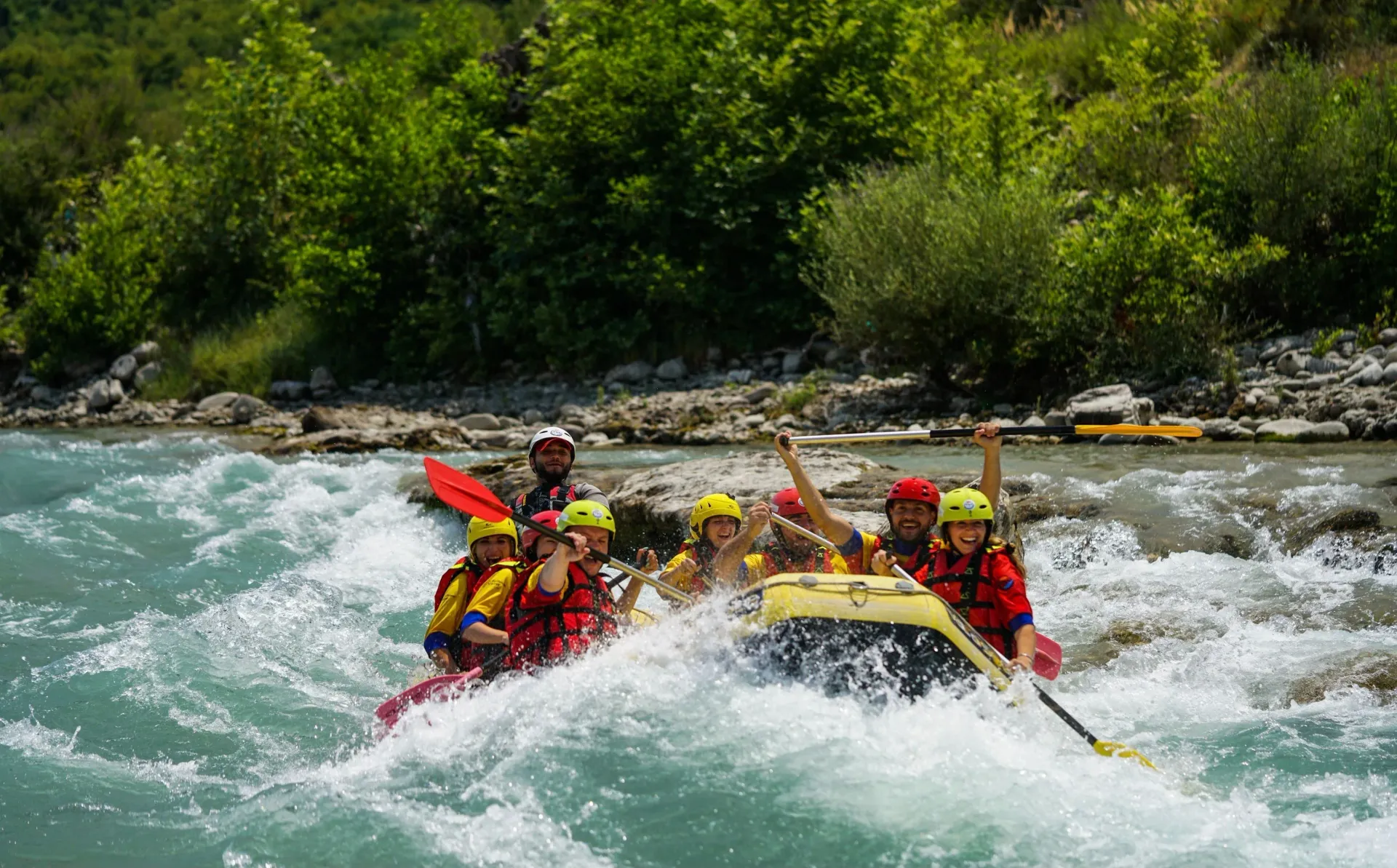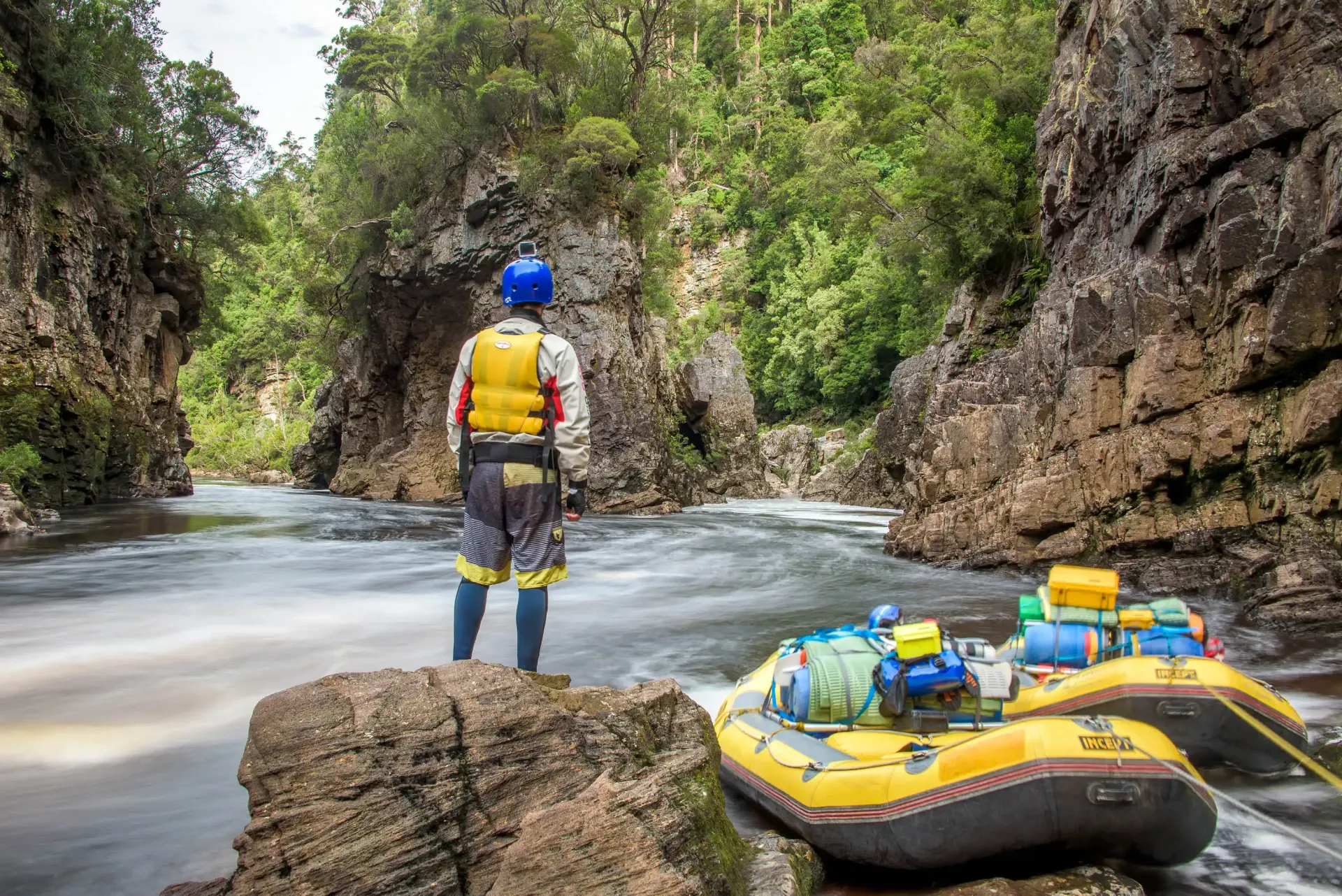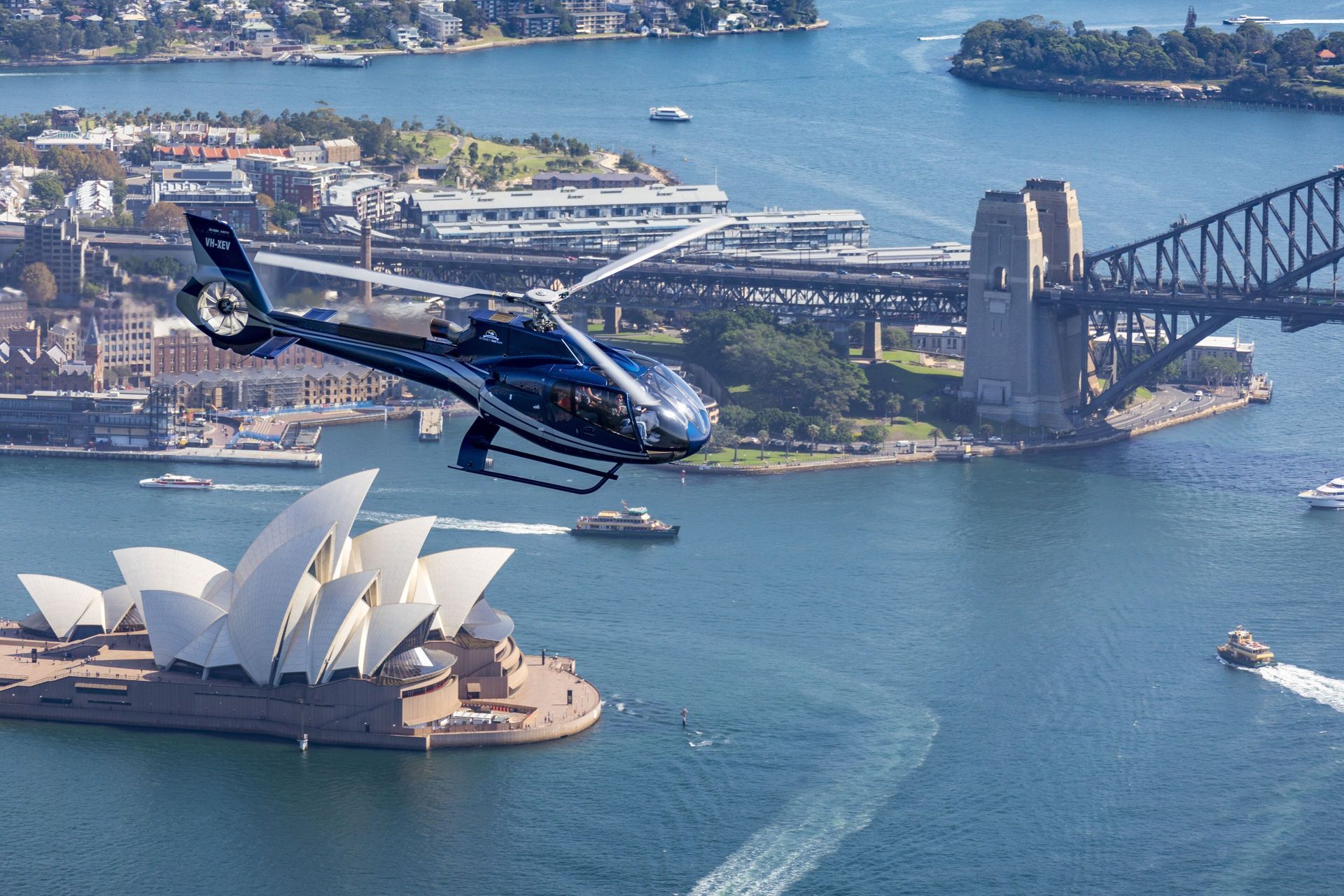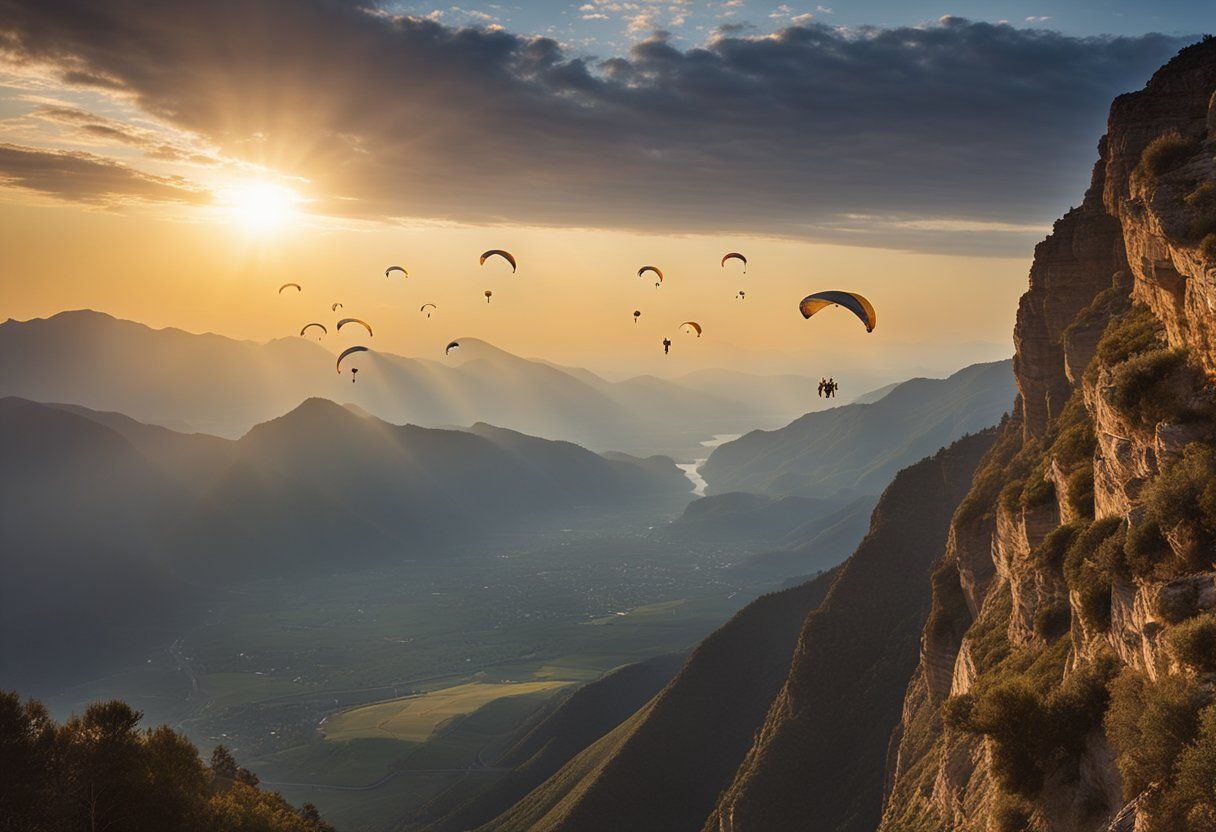To share
White water rafting in Tasmania offers an exhilarating way to explore the island's stunning landscapes and pristine wilderness. Tasmania boasts some of the most thrilling and scenic rafting experiences in the world, with winding rivers that cater to both beginners and seasoned adventurers. The island is home to several renowned sites that attract thrill-seekers from around the globe.

In Tasmania, the Franklin River is a standout for its challenging rapids and breathtaking surroundings. Guided tours, like those provided by Franklin River Rafting, allow adventurers to experience the river over eight to ten days. For those seeking a shorter trip, King River Rafting offers single-day adventures on the remote West Coast.
These tours not only promise excitement but also emphasize the importance of conservation and preserving the natural beauty of Tasmania’s rivers. With a variety of operators and tours, everyone can find the perfect rafting experience on this remarkable island.
Key Takeaways
- Tasmania offers world-class rafting experiences.
- The Franklin River and King River are top destinations.
- Tours focus on adventure and conservation.
History of White Water Rafting in Tasmania
White water rafting in Tasmania has grown in popularity and significance over the years. The Franklin River played a central role in its history, while advancements in rafting equipment have improved the experience for adventurers.
The Franklin River Campaign
The Franklin River, known for its breathtaking beauty and challenging rapids, became famous during the conservation movement in the late 20th century. The Franklin River Campaign in the early 1980s was pivotal in stopping a proposed hydroelectric dam that threatened its pristine environment. This campaign, led by environmental groups, highlighted the river's ecological and recreational value. The successful protest drew international attention, emphasizing the need to preserve natural landscapes for activities like white water rafting. Today, the Franklin River remains a key destination for rafters, offering adventurous multi-day trips that traverse its rugged terrain.
Evolution of Rafting Equipment
Since the first commercial rafting trips in Tasmania began in the 1970s, rafting equipment has evolved significantly. Initially, rafters used simple inflatable boats with basic safety gear. As white water rafting gained popularity, more sophisticated gear came into use, including high-performance inflatable rafts, specialized paddles, and advanced safety equipment such as helmets and life jackets. These changes have made rafting more accessible and safer for participants. The development of lightweight, durable materials has also improved the portability and strength of rafts, allowing explorers to tackle more challenging rivers like the Franklin River with greater confidence and skill.
Popular Rafting Locations
Tasmania offers thrilling white water rafting experiences through its pristine rivers. Among the most popular are the Franklin, Mersey, and Picton Rivers, each offering unique challenges and stunning natural beauty. These locations provide adventures suitable for both beginners and experienced rafters.
Franklin River Rafting
The Franklin River is one of the premier destinations for white water rafting in Tasmania. This river was famously saved from damming in the 1980s and now runs through the Tasmanian Wilderness World Heritage Area. Rafting trips here are typically long, lasting between seven to eleven days, covering approximately 100 kilometers.
The trips are rated as moderate to challenging and are perfect for those seeking an intense wilderness experience. Companies such as Franklin River Rafting offer guided tours that highlight the natural beauty and rugged terrain of this remote area. Families and groups often enjoy these tours due to the extended adventure and the unparalleled scenic beauty.
Mersey River Adventures
The Mersey River provides a range of rafting experiences, from gentle stretches for beginners to more challenging rapids for the seasoned adventurer. Located in northern Tasmania, this river is popular for shorter day trips which makes it accessible for families and first-time rafters.
Rafting operators in the area offer guided tours that ensure safety while providing insight into the region's unique flora and fauna. The Mersey River is ideal for those looking to enjoy a rafting experience without the commitment of a multi-day expedition. It's a perfect spot for those seeking to mix adventure with the stunning Tasmanian landscape.
Picton River Excursions
Another excellent location is the Picton River, known for its scenic beauty and diverse rafting conditions. Located in the south of Tasmania, the Picton River offers varying levels of difficulty, making it suitable for both novices and experienced rafters.
Rafting tours on the Picton River cover different sections that range from calm waters to thrill-inducing rapids. The close proximity to Hobart makes it a convenient choice for those looking to include a rafting adventure as part of their travel itinerary. Its picturesque surroundings also offer opportunities for wildlife spotting, enhancing the overall rafting experience.
Rafting Tours and Operators
Rafting in Tasmania is a thrilling way to explore the region's natural beauty. Learning how to pick the right tour and understanding safety measures are important for a great experience.
Choosing the Right Tour
Selecting the ideal rafting tour involves considering trip duration, difficulty level, and the experience of the tour operators. For instance, Franklin River Rafting provides 8 to 10-day tours emphasizing a deep dive into Tasmania's wilderness. Another option is Water By Nature Tasmania which offers a seven-day journey through the entire navigable length of the river.
Tourists should look for operators with strong reputations, knowledgeable guides, and thorough itineraries. Some offer additional services, like equipment rental or meal plans, which can enhance the trip's convenience and enjoyment.
Safety and Training
Safety and training are crucial when engaging in white water rafting. Reliable operators prioritize the safety of their guests by providing thorough instructions before and during the trip. Companies such as Franklin River Rafting ensure participants are informed about potential risks and safety protocols.
Training may include river navigation techniques, emergency procedures, and proper use of equipment. Guides often have certifications in first aid and ample experience handling various water conditions, ensuring they can respond effectively to unexpected situations. Understanding these aspects ensures a safer and more enjoyable experience for everyone involved.
Packrafting in Tasmania
Packrafting offers a unique way to explore Tasmania's diverse waterways. This activity combines adventure and access to remote areas with lightweight, durable boats.
Introduction to Packrafting
Packrafting involves using small, inflatable rafts, which are easy to transport and versatile in various conditions. These rafts offer a blend of stability and performance, making them suitable for both beginners and experienced adventurers.
In Tasmania, packrafting is gaining popularity as it allows explorers to access pristine and untouched natural environments. It is ideal for those looking to venture into the wilderness without the bulk and weight of traditional rafting gear.
Best Spots for Packrafting
Several locations in Tasmania offer prime packrafting opportunities. The Mersey River near the Alum Cliffs presents a scenic route through remote rainforest landscapes. This area provides an ideal setting for packrafting, with its towering cliffs and serene waters.
In contrast, the Crossing River offers a more challenging experience. This area, recommended by Pack Raft Australia, provides a thrilling adventure with varying water conditions, making it suitable for those seeking more excitement. These spots highlight why Tasmania is a top destination for packrafters.
Conservation and Sustainability

Conservation efforts in areas like the Franklin River focus on preserving the natural environment while allowing activities like white water rafting. Sustainable practices aim to minimize ecological impact, ensuring that future generations can enjoy the river's pristine condition.
Eco-friendly Practices
In Tasmania, eco-friendly practices help maintain the delicate balance within the natural habitats. Rafting companies often adopt sustainable measures by using biodegradable materials and ensuring waste is properly disposed of. Guides are trained to keep disruptions to wildlife at a minimum, helping reduce human impact on surrounding ecosystems.
Moreover, partnerships with local conservation groups can help. By aligning with these organizations, rafting companies contribute to broader conservation programs, reinforcing their commitment to the environment.
Rafting Impact on Local Ecosystems
White water rafting has potential impacts on local ecosystems, particularly in sensitive areas like the Franklin River. The activity can affect water quality and disturb local wildlife if not managed responsibly. It is crucial for rafting operations to adhere to strict environmental guidelines to protect the habitats they traverse.
Educational programs for visitors are important in reducing ecological footprints. When participants are aware of the environment, they tend to be more respectful of the natural space. Conservation efforts depend on these combined activities to ensure a sustainable balance between adventure and the environment.
Frequently Asked Questions
White water rafting in Tasmania offers thrilling experiences across various rivers, suitable for both beginners and seasoned rafters. It's essential to consider costs, safety, and timing for an optimal adventure.
What are the best locations for white water rafting in Tasmania?
Tasmania boasts some impressive rafting spots. The Franklin River is renowned for its challenging rapids and stunning scenery. The Mersey River in the north-west is also popular, known for strong currents that are perfect for testing skills.
Can beginners participate in white water rafting trips in Tasmania, and what should they expect?
Yes, beginners can join rafting trips in Tasmania. It's recommended to be a competent swimmer and leave valuables at home. Trips may vary in difficulty, with the Franklin River offering both moderate and challenging sections.
How much does it typically cost to go white water rafting in Tasmania?
The cost of rafting in Tasmania varies based on the location and duration of the trip. Multi-day adventures like those on the Franklin River can be more expensive. Travelers should check specific tour providers for current pricing details.
What is the ideal season to engage in white water rafting on Tasmania's rivers?
The best time for rafting in Tasmania typically spans from late spring to early autumn. During this period, water levels are generally more favorable for rafting, and the weather tends to be milder.
Are there any safety concerns or procedures first-time rafters in Tasmania should be aware of?
Safety is crucial when rafting. Participants should ensure they are comfortable swimmers and listen closely to guides. Leaving electronic devices and jewelry behind is advisable, as these might get lost or damaged.
What are the options for a one-day white water rafting trip in the Tasmanian wilderness?
For those looking for a shorter adventure, there are one-day trips available. These provide a taste of the excitement without the commitment of a multi-day journey. It's best to check with local rafting companies for current offerings.




